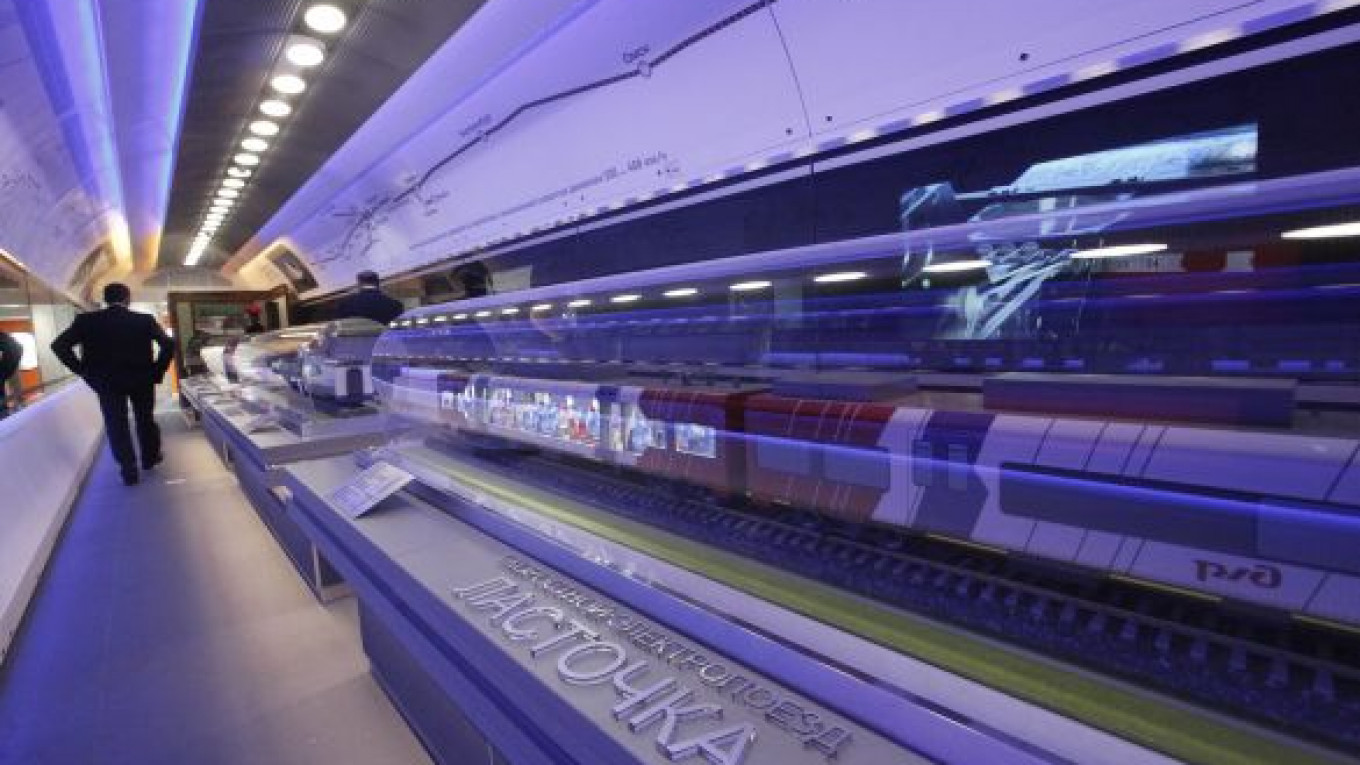Ural Locomotives, the Sverdlovsk region-based joint venture between the Sinara Group and Siemens, announced plans to develop a new urban express train.
The new locomotive will be based on Seimens' Desiro Swallow, which Russian Railways has ordered in advance of the Sochi Winter Olympics.
The company hopes to complete preliminary design planning of the new train by April, Sinara said in a statement quoted by RIA-Novosti.
"The Ural trains will have unique technical features, and therefore require a lot more design work and implementation of new engineering solutions," Sinara said in the statement.
"The technical details of the project should be in place by fall, and by September 2013 we hope to have completely prepared working documents for the transfer of technology and production," the statement said.
Ural Locomotives general director Alexander Saltayev said the factory hoped to produce and certify six five-wagon trains in 2014 before launching serial production of the new models in 2015.
Sinara reported that it has agreed and approved specifications for suburban commuter and interregional versions of the train, but added that the specifics of development and production schedules "will depend on the needs and deadlines of Russian Railways."
In October Siemens announced that it would invest 200 million euros ($262 million) in expanding capacity to assemble locomotives and railcars at Ural Locomotives in the Sverdlovsk region.
The investment followed the securing of a deal in September to supply Russian Railways with 1,200 Swallow cars starting in 2013. Seimens said at the time that it was the company's largest single contract in its history in Russia.
Russian Railways has already ordered 54 Desiro Swallows, known locally as Lastochka, a variant of the Desiro model designed especially for Russia, from Siemens to carry passengers to the 2014 Olympics. The first 38 will be built in Germany and the remaining 16 are being produced in Russia at the joint venture.
The 160-kilometer-per-hour commuter trains play a key role in Russian Railways' plans to modernize its commuter services. They also use 30 percent less electricity than the current generation of electric trains in use in Russia.
The Swallow variant was built for Russia's wider 1,520-millimeter-gauge tracks and is specially equipped to cope with the country's extreme weather conditions.
Siemens presented its first German-built trains to Russian Railways vice president Valentin Gapanovich at its plant in Krefeld, Germany, on Jan. 27. The trains will begin arriving in Russia at the port of Ust Luga port in March.
The first trains are set to run in Sochi and Kazan in 2013.
Russian Railways may sell between 10 billion rubles and 15 billion rubles (between $330 million and $495 million) of inflation-linked bonds this year, Bloomberg reported last week, citing deputy head of corporate finance Pavel Ilichev. The company is in talks with pension funds to sell the securities that may have a maturity of between 15 and 20 years, Ilichev said.
A Message from The Moscow Times:
Dear readers,
We are facing unprecedented challenges. Russia's Prosecutor General's Office has designated The Moscow Times as an "undesirable" organization, criminalizing our work and putting our staff at risk of prosecution. This follows our earlier unjust labeling as a "foreign agent."
These actions are direct attempts to silence independent journalism in Russia. The authorities claim our work "discredits the decisions of the Russian leadership." We see things differently: we strive to provide accurate, unbiased reporting on Russia.
We, the journalists of The Moscow Times, refuse to be silenced. But to continue our work, we need your help.
Your support, no matter how small, makes a world of difference. If you can, please support us monthly starting from just $2. It's quick to set up, and every contribution makes a significant impact.
By supporting The Moscow Times, you're defending open, independent journalism in the face of repression. Thank you for standing with us.
Remind me later.






